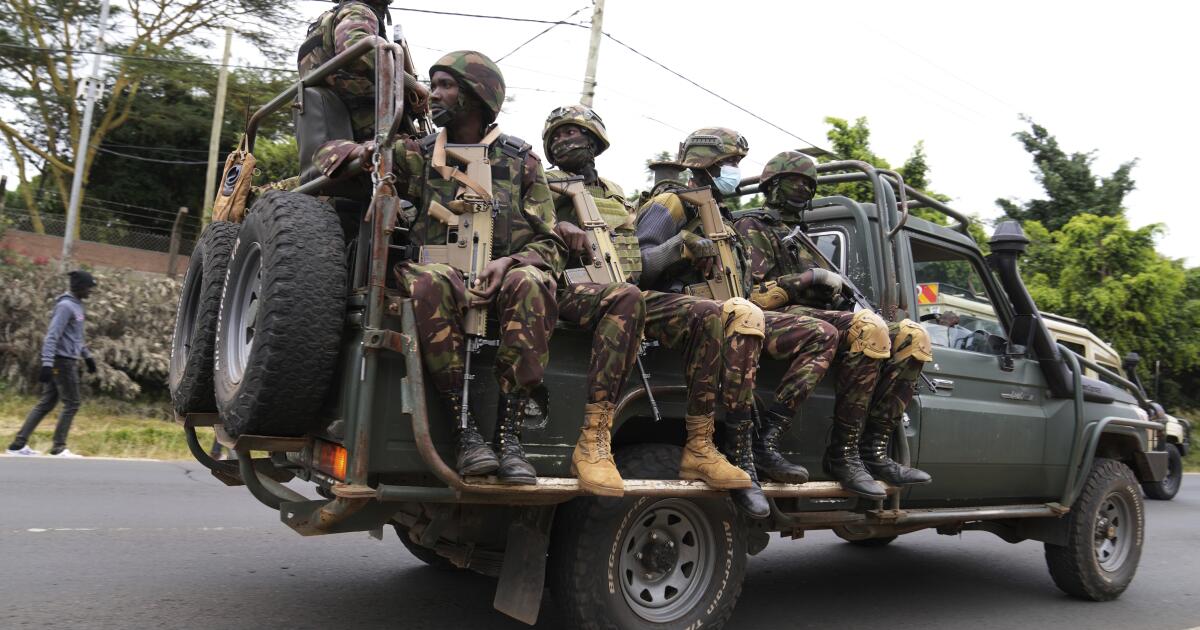NAIROBI, Kenya —
Police in Kenya’s capital hurled tear gas Thursday to break up anti-tax protesters who continued to gather despite President William Ruto’s repudiation of unpopular tax legislation that prompted deadly unrest earlier in the week.
The finance legislation has drawn fierce resistance from a Kenyan public reeling from higher costs of living, especially from younger protesters, who stormed parliament on Tuesday and drew police fire in chaos that left several people dead — reportedly as many as 22.
Protesters who continued gather Thursday said they still don’t trust Ruto despite him sending the finance bill back to parliament with a vow to make budget cuts to replace the proposed new taxes and fees on a range of items and services, from egg imports to bank transfers.
Thursday’s protests were at a smaller scale than Tuesday’s, and every attempt by demonstrators to congregate was met by pushback from the police. The military also has been patrolling the city, despite a Wednesday court order that suspended their deployment to support police during the protests.
Deputy President Rigathi Gachagua on Wednesday urged the young protesters to call off any planned protests and give dialogue a chance.
The leaderless movement began online with young people demanding that legislators reject the proposed tax hikes. It later morphed into calls for the president’s resignation after the bill was passed. On Tuesday, thousands of protesters stormed Kenya’s parliament, burning parts of the building and sending lawmakers fleeing. Police opened fire and at least 22 people were reportedly killed.
Activists were divided about the agenda of Thursday’s protests. One protester, Boniface Mwangi, urged others to peacefully march to a parliament road where protesters were killed to pay their respects. “Invasion of the State House isn’t a solution,” he wrote on X.
But Francis Gaitho, one of the many activists mobilizing the protests online, insisted that young people should march to the presidential residence, or State House.
Activists and others warned that the stakes were higher than in past protests, because Ruto vowed on Tuesday to quash unrest “at whatever cost.”
Analyst Javas Bigambo told the Associated Press that the discontent is partly because Kenyans don’t trust the president to implement the austerity measures he announced Wednesday.
“Kenyans still have a problem with the economy and wastage in government,” he said.
Parliament Speaker Moses Wetangula on Thursday referred the president’s memorandum on the finance bill to the finance committee, which is expected to report back to the house in the next sitting. Parliament is on recess until July 23.
Musambi writes for the Associated Press.

